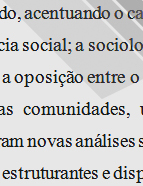

................................
Another important figure was Joaquim José Caetano Pereira e Sousa (1756-1819), from a learned family, who joined the Order of Christ, adhered to the Pombaline project and taught at the College of Nobles until 1804. Founder of the ARC and close to D. Rodrigo de Sousa Coutinho, he belonged to the same Masonic lodge (Loja Amizade , created in 1801) as the Principal of the See of Lisbon and brother of the Count of Linhares, as well as Jácome Ratton, Francisco de Borja Stockler and the sons of Intendente Pina Manique (Paulo Nogueira de Andrade Pina Manique and Pedro António de Pina Manique). Having been a lawyer at the Casa da Suplicação , he decided to write Primeiras Linhas sobre o Processo Civil (1818) on the procedural circuit of the courts, the jurisdiction of magistrates, ombudsmen, judges and orphans. However, his most useful work for the history of institutions was Esboço de hum Diccionario Juridico , Theoretico , e Pratico, remissivo às leis compiladas e extravagantes (1825-1827, 3 volumes).
The influence of Alexandre Herculano (1810/1877) had consequences due to the pioneering nature of his work and what it represented in terms of rigour and modernity in the conception of a documentary and critical history (Sérgio C. Matos, Idem, p.27). By declaring that the purpose of history is “to ascertain the existence of past generations” and that “those who study Portuguese history must bury themselves in public archives and discover among thousands of parchments (...) those that serve their purpose; (...) they must revive inscriptions, become familiar with the private archives of cathedrals, municipalities and monasteries; they must be a palaeographer , antiquarian, traveller , bibliographer, everything” (vol. I, pp. 19, 23), Herculano contributed decisively to the professionalisation and autonomy of the status of historian.
This work is financed by national funds through FCT - Foundation for Science and Technology, I.P, in the scope of the projects UIDB/04311/2020 and UIDP/04311/2020.
